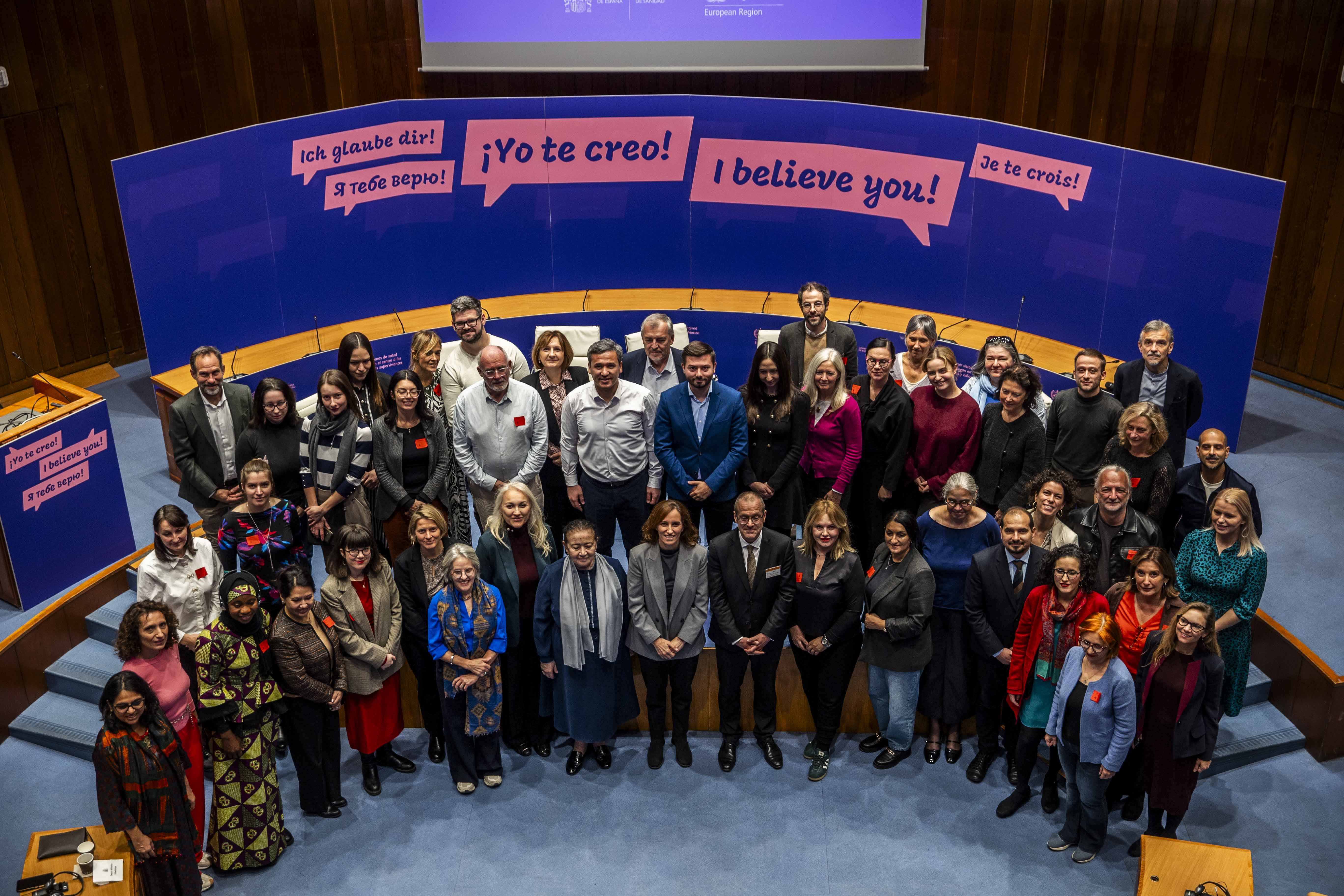Compromiso de Madrid sobre el fortalecimiento de los sistemas de salud para responder a la violencia contra las mujeres y las niñas
-

- We, the co-hosts of this high-level meeting of the WHO Regional Office for Europe and the Ministry of Health of Spain, on building survivor-centered health systems, gathered in Madrid on 20–21 November 2025, affirm that violence against women and girls (VAWG) is a violation of human rights and a public health emergency that demands urgent health sector action.
- We reaffirm that health systems have a unique responsibility and opportunity to respond to survivors with high-quality survivor-centered care, grounded in internationally recognized human rights principles and standards—including the rights to autonomy, privacy, confidentiality, informed consent and choice.
- We acknowledge:
- The courage of survivors who shared their experiences and insights.
- The expertise of civil society organizations and frontline workers who tirelessly advocate for change and (often) provide services.
- The evidence presented in the WHO Regional Report: Care, Courage, Change: Health-Sector Leadership in Tackling Violence Against Women and Girls.
We commit to transforming these insights into action.
4. We commit to a future where every health facility can be a place where survivors are believed, respected, and supported without fear of stigma or harm.
Based on feedback from lived experience advocates, survivors, civil society groups, and health workers, we are calling for the following five concrete actions:
- Abolish mandatory reporting of violence by medical professionals for legally competent adult survivors to remove barriers to care, underpinned by survivor autonomy
- Guarantee essential and life-saving services are fully resourced and delivered within a strong accountability framework, with integrated, needs-driven, and autonomy-affirming support for survivors across all levels of the health system.
- Ensure that all healthcare providers receive competency-based and culturally-sensitive training to identify and respond to violence—including how to ask about violence, offer first-line support, provide clinical care, and make referrals—while also being trained to recognize and challenge harmful gender biases.
- Gather standardized data on the quality, coverage, availability, and accessibility of health services for women and girls, and assess how these services coordinate with other sectors, informed by research co-developed with survivors.
- Make sure services are not discriminatory and address the needs and barriers faced by specific vulnerable and at-risk women and girls and include their voices in the design of health services for them.















